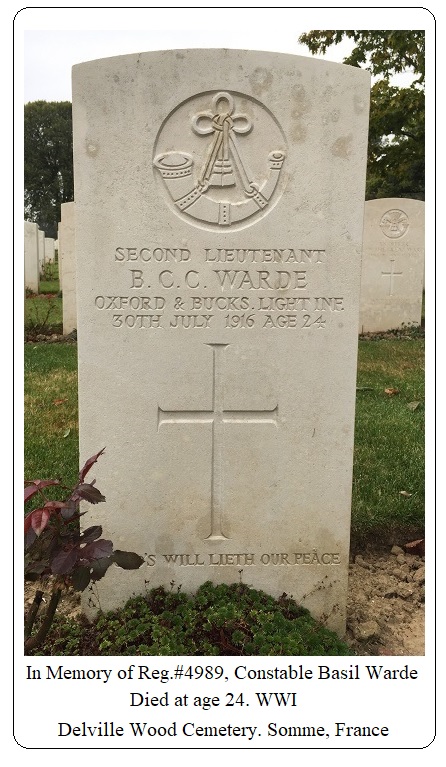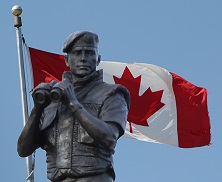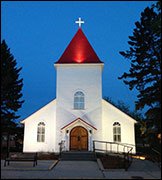True and Fascinating Canadian History
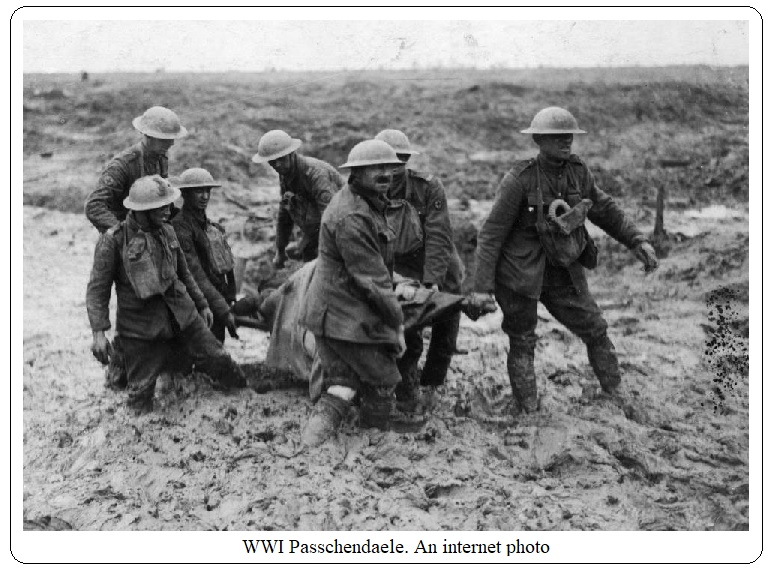
Vet of the Month: October, 2018
Vets Who Ran, Walked or Rode Away
RCMP Vets. Ottawa, ON
The world has its share of complainers and people who form a quick opinion or find fault with a work companion, a neighbour or an acquaintance when only part of the circumstances of their whole story is known. Life's lesson is very simple; it is best to be sympathetic, to remain open minded and not to prejudge anyone no matter the circumstances. Even in the most serious of cases, there is usually a thread of good in almost every person.
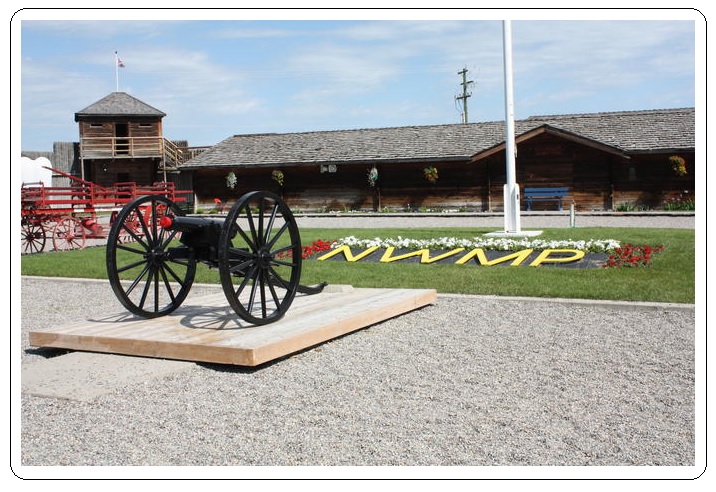
The short piece which follows is about a few men who deserted their responsibility to the North West Mounted Police (NWMP) yet went on to serve Canada in WWI. On the one hand, they were labelled as deserters and thus scorned by the NWMP and society too, but on the other hand they paid a high price in war with the Canadian Expeditionary Force (C. E. F.) and they made sacrifices with suffering, serious injuries and death in battle.
Among historians it is no secret that there were a few hundred men who deserted from the ranks of the NWMP especially in the early years beginning in 1873. In their celebrated book, “The Royal Canadian Mounted Police: A Century of History” authors Nora and William Kelly addressed the problem of desertions especially during early preparations and the months leading up to the March West. The authors wrote, “One by one they began to desert and cross into the US. When the number of desertions reached thirty-one, Commissioner French called a full dress parade ... He addressed his men. A few [more] misfits left." (Kelly: 28). Yet even after the Commissioner's speech, desertions by the NWMP continued and it was a problem for all the days and months of the March West.
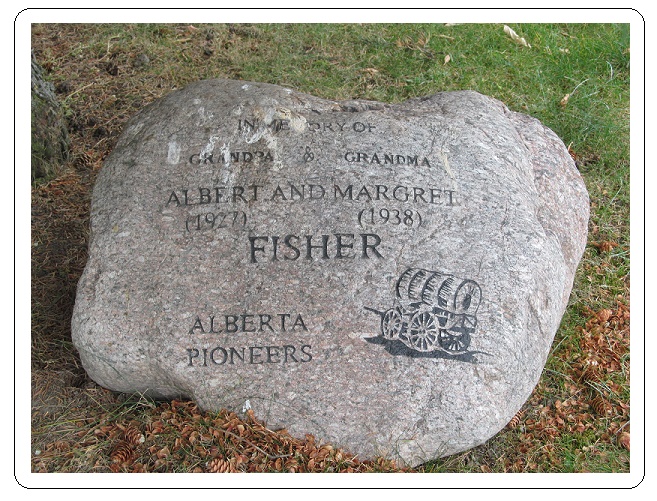
There was no lack of reasons for the men to be dissatisfied in their new role and experience with the NWMP including; the heat and mosquitoes, the lack of nutritious food, cramped living conditions in the barracks, inadequate clothing to match weather conditions, the lack of games and activities to let off steam, poor pay, loneliness and lack of intimacy and not to mention a rigid and unforgiving discipline system. The constant and relentless surveillance of the men whether they were on duty or off duty by picky NCO’s and aloof Officers just added mental anguish to the men’s already stressful state of mind. The men had nowhere to turn.
If one looks back in time and examines the conditions under which the NWMP lived, it is more understandable why some men reasoned that to abandon their post was a positive alternative to the conditions under which they had to live and work.
Desertion at any time carries with it a negative connotation, but one must be reminded that men of the NWMP never deserted in time of war or in the face of the enemy, and there has never been any insinuation that desertion from the NWMP was related to cowardice. In fact, a tidy number of men who deserted the NWMP then enlisted for WWI went overseas and many were either wounded or killed in battle.
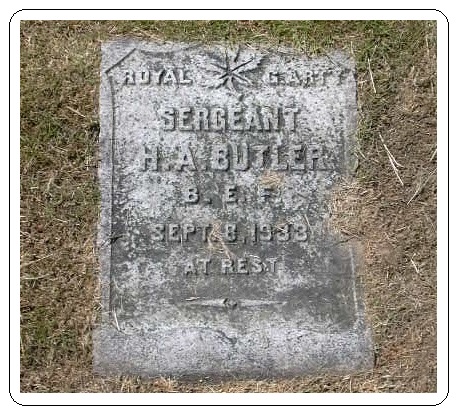
In 1885, Constable Thomas George Lester deserted the NWMP while enroute to western Canada. He was caught by the NWMP and sentenced to hard labour. Years later, Lester enlisted in the C. E. F. and went on to serve honourably overseas in WWI.
In 1888, Constable Clarence Albert Fisher also deserted the NWMP and he too was sentenced to hard labour. Fisher had once fought honourably in the North West Rebellion, and he also enlisted in WWI and went overseas to war. Fisher suffered from the effects of war, and so he was discharged from the Canadian Army on medical grounds upon his return to Canada.
Constable Herbert Arthur Butler joined the Canadian Army and fought overseas in WWI at the rank of Sergeant. His mind must have been deeply affected by war because he deserted the RNWMP upon his return to Canada in 1915. After suffering for many years, Butler was committed to a mental hospital near Vancouver, BC where he died at the age of 39.
Harry James Cook deserted the Royal North West Mounted Police (RNWMP) in 1914 but he was soon caught. Cook was treated with leniency by the Commissioner due to existing war conditions and he was allowed to return to his original post with the RNWMP. In 1915, Cook engaged with the C. E. F. and he was shipped overseas. Cook was killed at Vimy, but his body was never recovered. His name is listed among other NWMP names which were etched on Canada's National War Memorial at Vimy.
After WWI began, Harold Sydney Green deserted from the RNWMP so that he could enlist with the C. E. F. After WWI, he returned to Canada and joined the RNWMP once again. He too was treated with leniency due to his honourable service record while engaged in war.
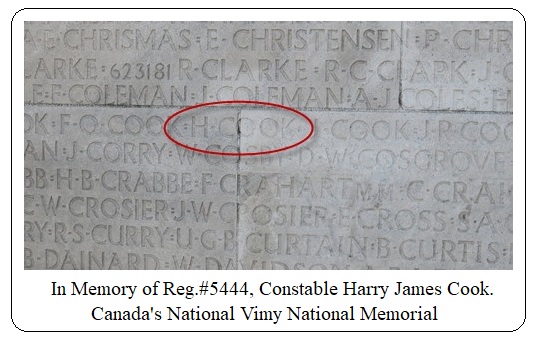
Ernest Pascoe once deserted the RNWMP so that he too could join the C. E. F. In the midst of the war, Pascoe was taken prisoner and he spent time in a German war camp. Upon his return to Canada, the charge of desertion was cancelled and he was allowed to rejoin the RNWMP since he had served honourablyduring the war.
And finally, Basil Charles Conroy Warde also deserted the RNWMP so that he could enlist in the C. E. F. Warde was shipped overseas where he fought in France. In the midst of battle, Warde was killed in action in 1916. He was buried in France.
In summary, it is not helpful that the term ‘deserter’ was used back in the day to label all of these men. Today, one realizes that the causes for a man to abandon his post was related to wide dissatisfaction within the NWMP and for the reasons which have already been enunciated.
For sure, the men who ran, walked or rode away did abandon their first responsibility to the NWMP, but everyone should not be clumped together. Each case should be examined on its own. The menwho deserted the NWMP and then went off to war should be shown a degree of understanding, some sympathy and a little leniency. Isolating them soley as deserters does not give justice to thesacrifices which these men made in war.
It is hopeful that all the NWMP who went to war are eventually accounted for and their graves are located and respectfully identified.
Kelly, Nora and William. (1973). The Royal Canadian Mounted Police. A Century of History 1873 - 1973. Edmonton. Hurtig.
Reporting from Fort Healy,
J. J. Healy
October 23, 2018
